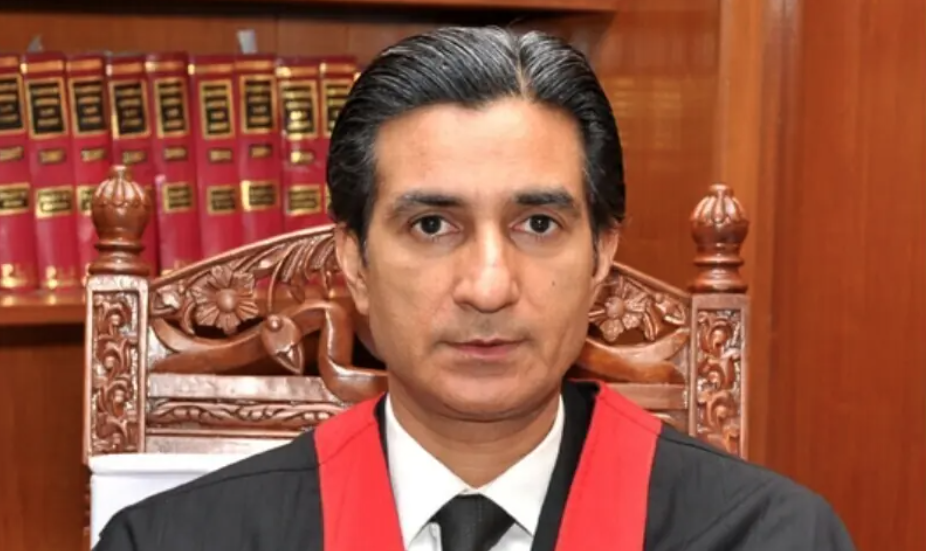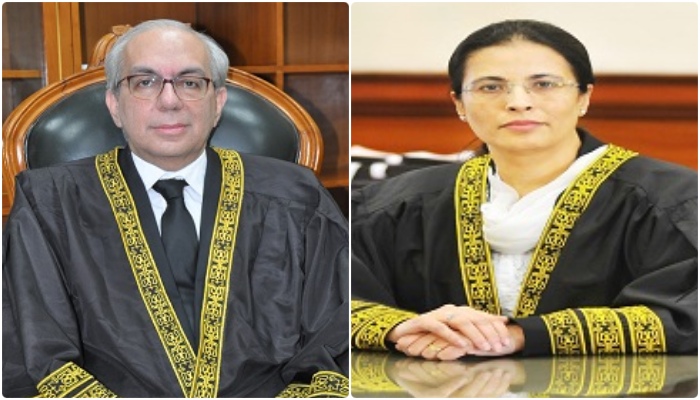LEGAL

Justice Shams Mehmood Mirza of the Lahore High Court (LHC) tendered his resignation on Saturday, becoming the first judge of any high court to step down following the enactment of the contentious 27th Constitutional Amendment — a development that has shaken Pakistan’s judicial landscape.
According to family sources, Justice Mirza’s resignation letter stated that he could not continue in good conscience after the latest constitutional changes were signed into law. His decision marks a significant moment in the evolving confrontation between the judiciary and the government over judicial independence.
Appointed as an additional judge of the LHC in March 2014, Justice Mirza was due to retire on March 6, 2028.
He is the son of the late Justice Zia Mehmood Mirza, a former Supreme Court judge renowned for delivering the lone dissenting opinion in the 1996 case concerning the dismissal of Benazir Bhutto’s government by then-president Farooq Ahmad Khan Laghari. Justice Zia had maintained that the president’s use of Article 58(2)(b) — which allowed the dismissal of an elected government — was unjustified and unsupported by evidence. That controversial article was later abolished under the 18th Amendment.
Growing Judicial Fallout After 27th Amendment
Justice Mirza’s resignation comes just two days after the passage of the 27th Amendment, which the International Commission of Jurists (ICJ) slammed as a “flagrant attack” on judicial independence. His exit follows the high-profile resignations of Supreme Court senior puisne judge Justice Mansoor Ali Shah and Justice Athar Minallah, both of whom authored scathing letters condemning the amendment’s implications.
The judicial unrest has escalated further amid speculation regarding transfers of high court judges. Islamabad High Court (IHC) Justices Mohsin Akhtar Kayani and Saman Rafat Imtiaz have already hinted that they may not be available to hear cases in Islamabad from next month, intensifying concerns about looming structural changes in the judiciary.
What the 27th Amendment Changes
The 27th Amendment introduces sweeping changes to the judicial system, particularly regarding constitutional jurisdiction and the transfer of judges.
One major provision empowers the Judicial Commission of Pakistan (JCP) to transfer high court judges without their consent — a move that has sparked unease across the legal fraternity.
Even more consequential is the formation of the Federal Constitutional Court (FCC), now designated as the country’s supreme authority on constitutional matters. Under the new structure, the FCC’s decisions will be binding on all courts, including the Supreme Court.
This shift effectively reduces the Supreme Court’s constitutional status, confining its jurisdiction primarily to civil and criminal matters. The amendment’s critics argue that the changes dismantle long-established judicial hierarchies and undermine the independence of Pakistan’s top courts.
With three prominent judges resigning in protest within days, and others signalling resistance, the fallout from the 27th Amendment is rapidly evolving into a full-blown judicial crisis — one that continues to test the country’s constitutional foundations.




